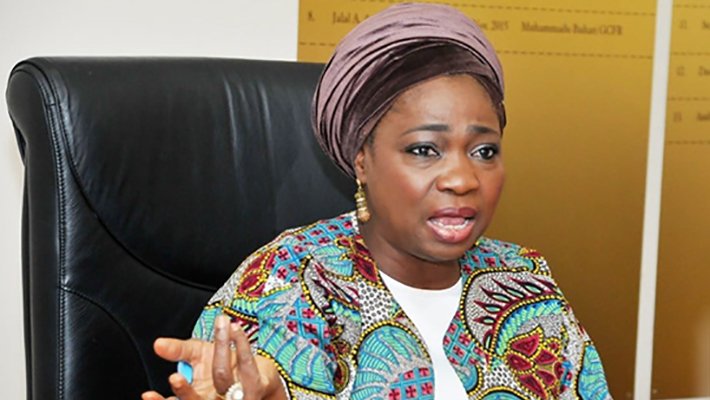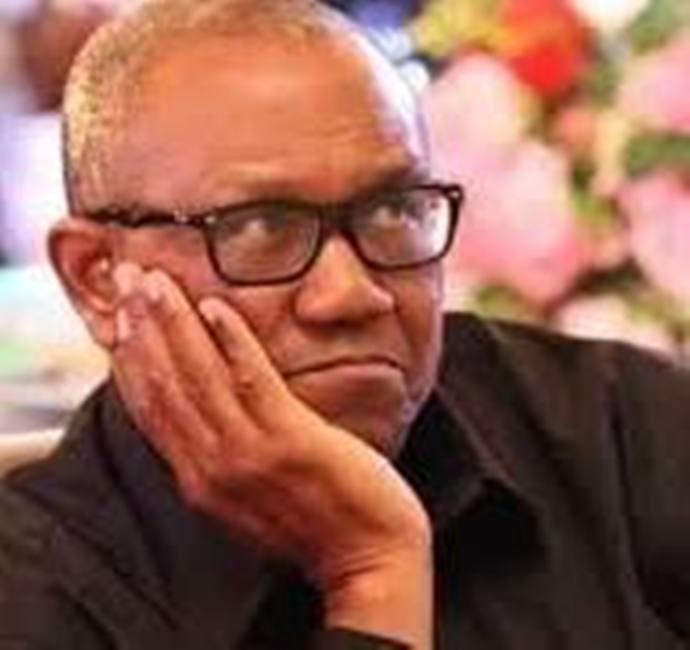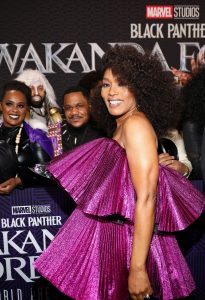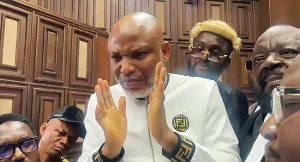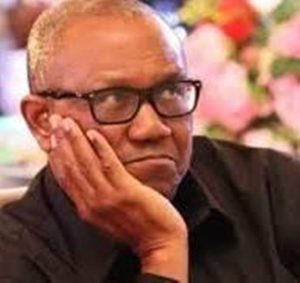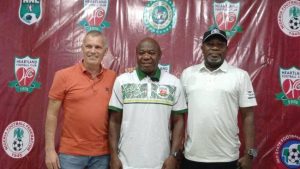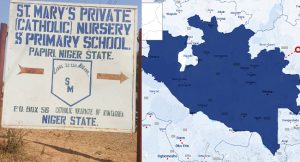Abike Dabiri-Erewa | File Image
By Azuka Onwuka
In a diverse and fragile country like Nigeria, especially one that has experienced a war and countless bloody ethno-religious incidents, ethnic slurs and bigotry from ordinary citizens are harmful enough.
But when public officials magnify such sentiments, the damage is deeper and longer lasting, with the risk of leading to disaster. That is why the recent embarrassing social media action of the Chairman of the Nigerians in Diaspora Commission, Abike Dabiri-Erewa, portends danger.
Last week, the former member of the House of Representatives retweeted a vile post referring to the Igbo as “monkeys, children of gorillas and bastards”.
She just did not retweet it; she added multiple laughing emojis to her retweet.
For someone who was a broadcaster for many years, it was not just another example of social media recklessness that is hard to explain; it was self-splashed mud on her exalted office and that of President Bola Tinubu, to whom she reports.
It was also a tacit endorsement of hate speech by an official of an administration that has raised its voice strongly against hate speech, especially uncomplimentary social media posts.
But given her antecedents, the bigger question is not just why she shared such a message but why she continues to occupy an influential federal position after repeatedly crossing the line of public decency.
This gives the impression that she is speaking the mind of the President.
This incident is not her first brush with charges of ethnic prejudice.
Just this August, she made a casual but loaded statement that out of the 21 Nigerians on death row in Indonesia, 20 are from one South-East states, while one is from Edo State.
Many Nigerians went on to publish the list of Nigerians from her ethnic group on death row in Saudi Arabia, turning it into a ridiculous contest of which ethnic group produces more criminals. That is the type of danger divisive elements like Dabiri-Erewa expose Nigeria to.
The grouse is not that she exposes those who bring a bad name to Nigeria. It is that she has repeatedly shown bias to other ethnic groups, especially the Igbo people, something which should not be associated with her office as a federal official.
In 2023, the Coalition of South-East Youth Leaders accused her of removing Igbo evacuees from rescue vehicles during the Sudan crisis. She denied the allegation.
Also read: Why I’m for Peter Obi, by Dele Farotimi
These are not isolated slip-ups. There have been other actions and utterances from her that have shown ethnic prejudice, forming a pattern that fuels suspicion that she cannot help herself with ethnic prejudice.
Even if her defenders insist that she has been misrepresented, a federal officer cannot afford to repeatedly project the image of ethnic bias. Words matter. Symbols matter. And silence in the face of public outrage matters too.
The other disturbing angle is the response – or rather the lack of one – from President Bola Tinubu’s administration.
Similarly, during the administration of Muhammadu Buhari as President, she carried on with these direct and subtle ethnic profiling without being penalised by that government.
This has been a stain on the All Progressives Congress.
Despite all the shortcomings of the Peoples Democratic Party from the era of Olusegun Obasanjo to Goodluck Jonathan, it did not condone ethnic baiting or profiling by its officials.
Nigeria is a multi-ethnic federation struggling with fragile trust among its diverse peoples. When someone in a national position fans the flames of division, the least expected of the Presidency is a prompt rebuke.
And if the person has been known to engage in that, a government with a national mindset would let the person go, so as not to dent its image.
But like in several other cases, there has been no word of condemnation from the President, nor any word of reassurance to the victims of Dabiri-Erewa’s actions that such ethnic insults are unacceptable under his leadership.
This silence is not neutral; it risks being read as tacit approval. And tacit approval emboldens others.
But how can the President condemn Dabiri-Erewa when his own spokesman, Bayo Onanuga, had issued similar ethnic slurs and threats in the past?
When he was criticised, he said he stood by his words and had no apologies.
Tinubu said nothing, did nothing. Does that not show presidential endorsement?
Already, ethnic slurs are becoming more normalised in Nigeria’s public discourse.
When prominent figures make them without any repercussions, citizens take the cue that bigotry is permissible and even rewarded.
There are many social media defenders of the government whose posts are focused mainly on ethnic baiting and slurs. The long-term cost is a society where respect is eroded and unity is traded for mutual distrust.
Nigeria is known to harp on unity, peace, and progress. They are even part of its motto.
Federal officials are expected to embody those ideals. Yet Dabiri-Erewa’s conduct reflects the opposite.
Other countries that truly believe in peace and unity don’t condone prejudiced officials.
Ministers and public appointees in the United Kingdom, Canada, or Japan have resigned or been forced out for far less, sometimes for decade-old comments resurfacing on social media.
Accountability in those societies is tied to the principle that public office is a privilege, not a personal possession.
The office is bigger than the occupant.
Why then does Nigeria tolerate such breaches? Why should a federal appointee amplify a racist or ethnic insult without consequence?
Why is there no disciplinary mechanism triggered in such cases?
These are not rhetorical questions. They go to the heart of governance, trust, and the fragile project of Nigerian unity.
Allowing Dabiri-Erewa to remain in office despite her latest action carries several risks.
It will erode trust in government institutions. If NIDCOM’s leader openly mocks an entire ethnic group, how can the Igbo in the diaspora trust the agency to represent their interests fairly?
It will also give legitimacy to ethnic prejudice. The more the Presidency remains silent over these ethnic slurs, the more it informs Nigerians that ethnic ridicule is acceptable.
It also has the potential to worsen the polarisation in the polity.
Nigeria’s unity is already under strain from secessionist agitations, insecurity, and economic hardship.
Ethnic insults from government officials only pour petrol on the fire.
For the government, several paths exist, but inaction should not be one of them. The minimum expectation from the NIDCOM’s boss is to issue an unreserved apology to the Igbo. But apologies alone ring hollow when patterns of behaviour suggest deeper prejudice.
Nigerians deserve accountability that goes beyond mere words.
If she cannot convincingly demonstrate impartiality, she should step aside. Removing her would not be an act of political weakness; it would be a demonstration that Nigeria values unity above personal loyalty.
Nigeria’s greatest asset is its diversity, but that diversity can also be its undoing if handled carelessly.
Leaders must rise above petty divisions. They must embody inclusiveness in words and deeds.
The tragedy of the Dabiri-Erewa episode is not just the insult itself, but the reminder of how easily ethnic wounds can be reopened.
Healing requires more than economic policies or political speeches; it requires leaders who understand that dignity for all is non-negotiable.
Dabiri-Erewa may once have been admired as a journalist and lawmaker, but her recent actions have overshadowed that legacy.
Politics has a way of unravelling people. The onus is now on President Tinubu to decide whether she remains the right person to represent Nigeria’s image to the world.
If unity truly matters, then silence is no longer an option.
Accountability must speak louder than prejudice.
.Culled from
PUNCH
…………
For more interesting stories click: nigerianewsflight.com.ng
